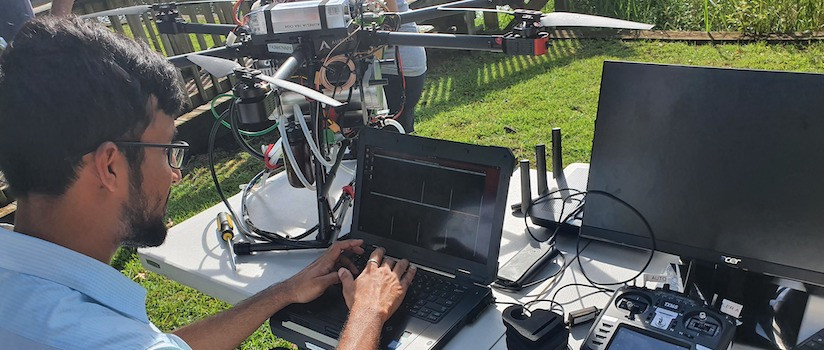An Interdisciplinary Approach to Clean Water Research
Our interdisciplinary team of researchers work together to examine water quality, contaminants and perception through various lenses. This integrated approach to clean water research allows for a more comprehensive body of research that takes into account various fields of study, including biology, ecology, geography, social sciences and mechanical engineering.
Enhancing the Understanding of Water Quality
The institute is helping advance the future of water sampling by the creation of innovative
and easily deployable water quality monitoring methods. These novel methods aid in
expanding sampling sources and increase the speed at which water quality data is recorded.
By sampling more waterways and performing more detailed sampling of particular water
bodies, the institute seeks a better understanding of the effects of water quality
on surrounding ecosystems.
Working Groups
The institute's interdisciplinary, collaborative working groups will produce an integrated view of the new ways that water quality can be sampled and understood.
-

Focus Area 1: Remote Water Sensors and Targeted Sampling
Lakes and rivers are a major source of municipal drinking water and provide valuable recreational and tourism resources to local communities. Remote drone sampling technology will make it easier to monitor and maintain water quality in many areas that have been historically difficult to sample.
-

Focus Area 2: Contaminants and Effects on Ecosystems
Researchers are discovering new water contaminants that have lethal effects on microorganisms in water bodies. These microorganisms are the supportive base of aquatic ecosystems, which means threats posed to them also impact surrounding wildlife and humans, leading to significant ecological risk.
-

Focus Area 3: Mapping and Modeling Water Quality
We are developing a visual and analytic approach for identifying contaminant sources in an impacted stream or a water sampling site using a coupled geographic information and remote sensing resource system.
-

Focus Area 4: Public Perception of Water Quality
We are assessing the differences between objective measures of water quality and the subjective perceptions of the public through a series of surveys.
Goals and Progress
The institute has devised overarching objectives and year-by-year goals to guide and
measure the progress of its research projects and overall vision.

